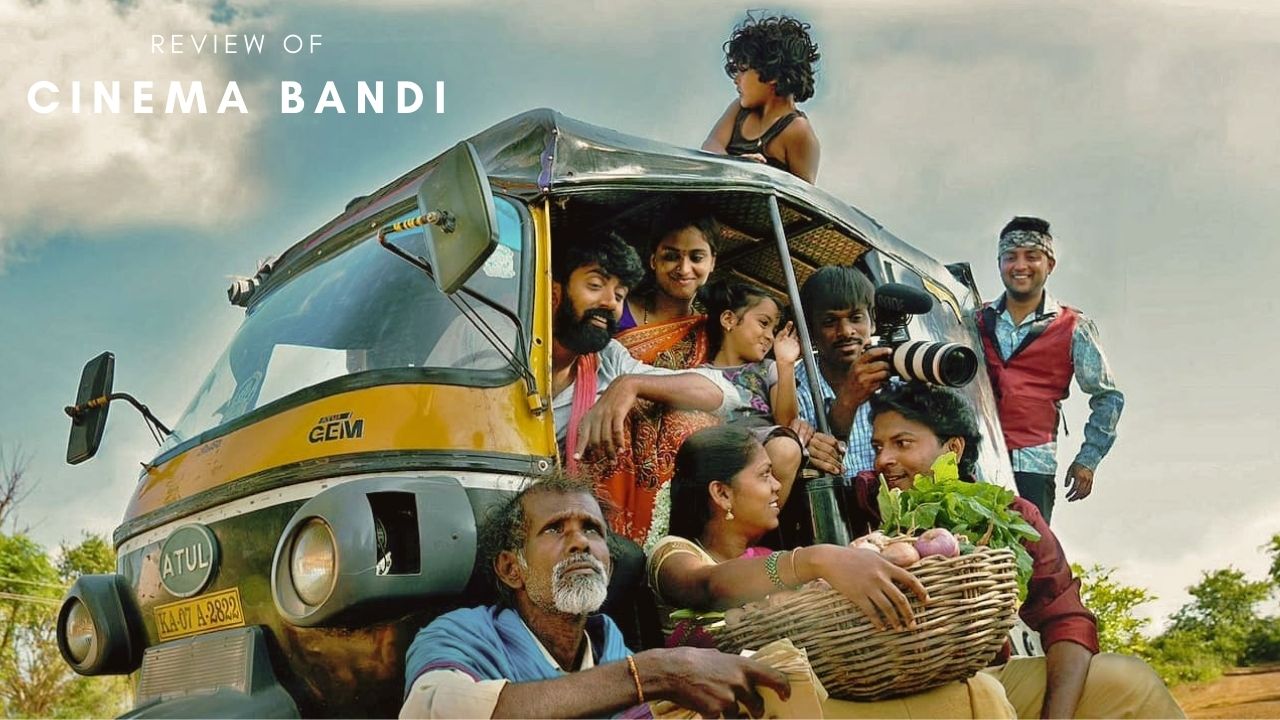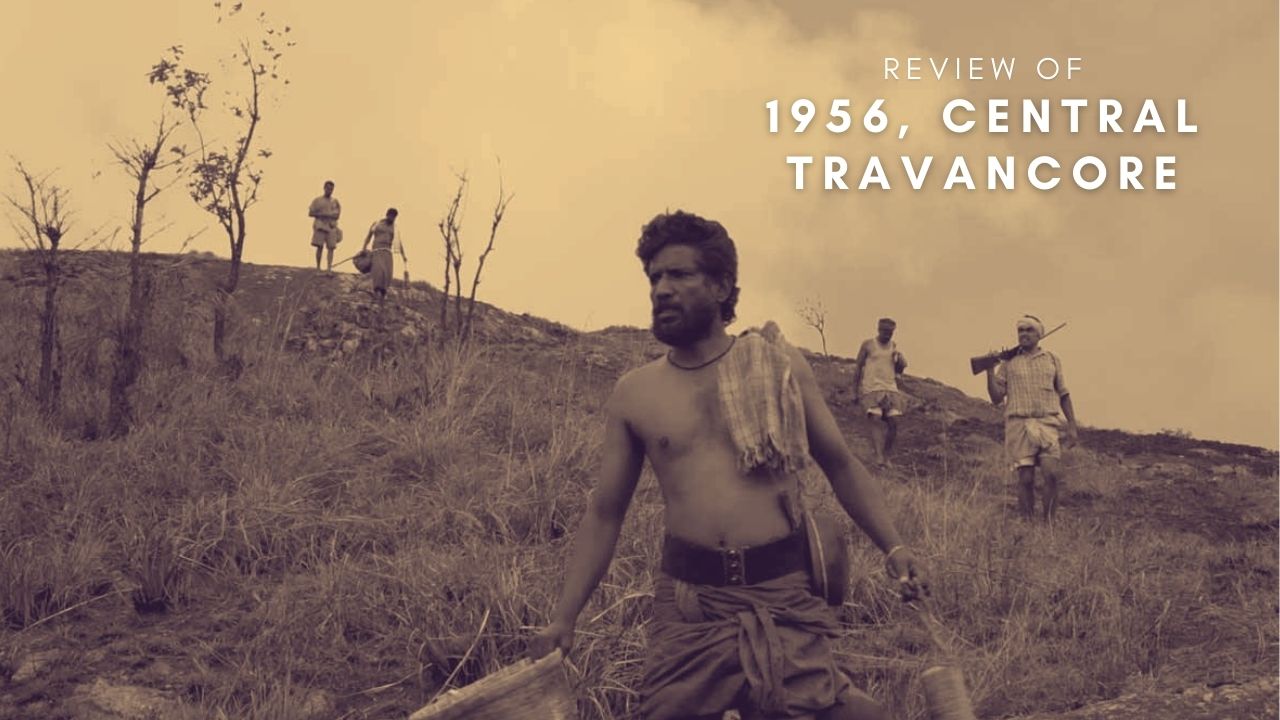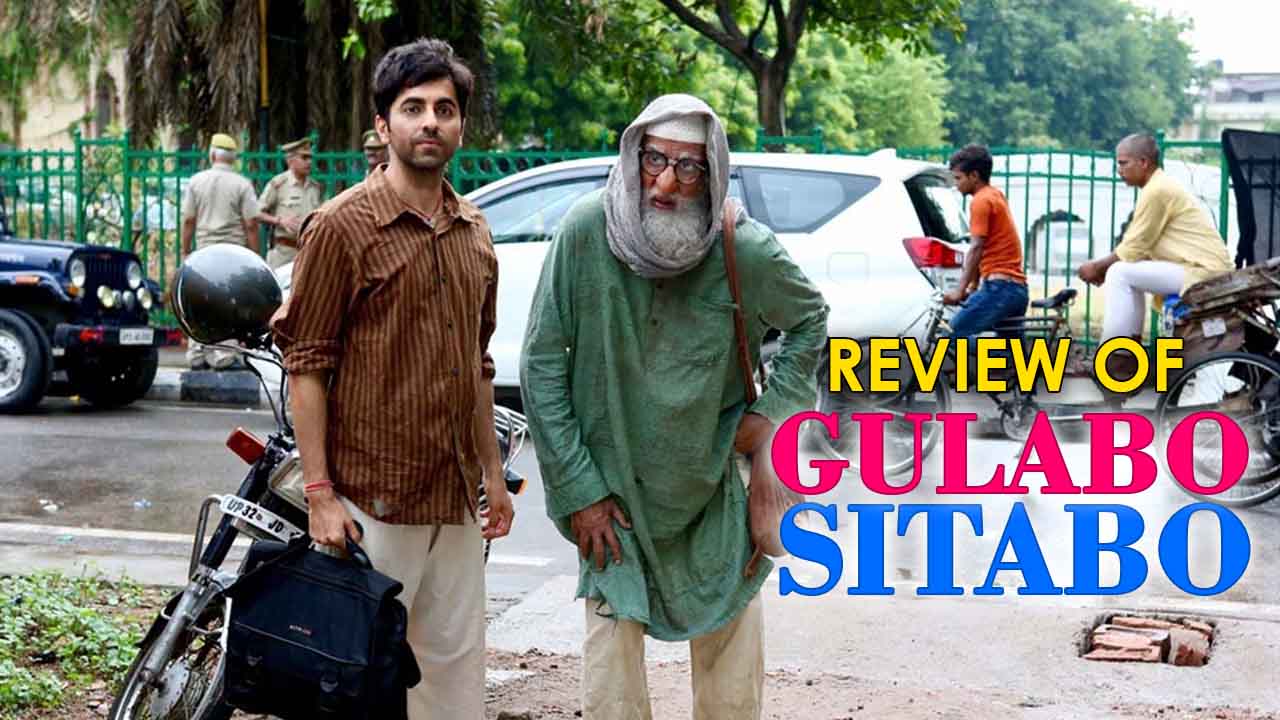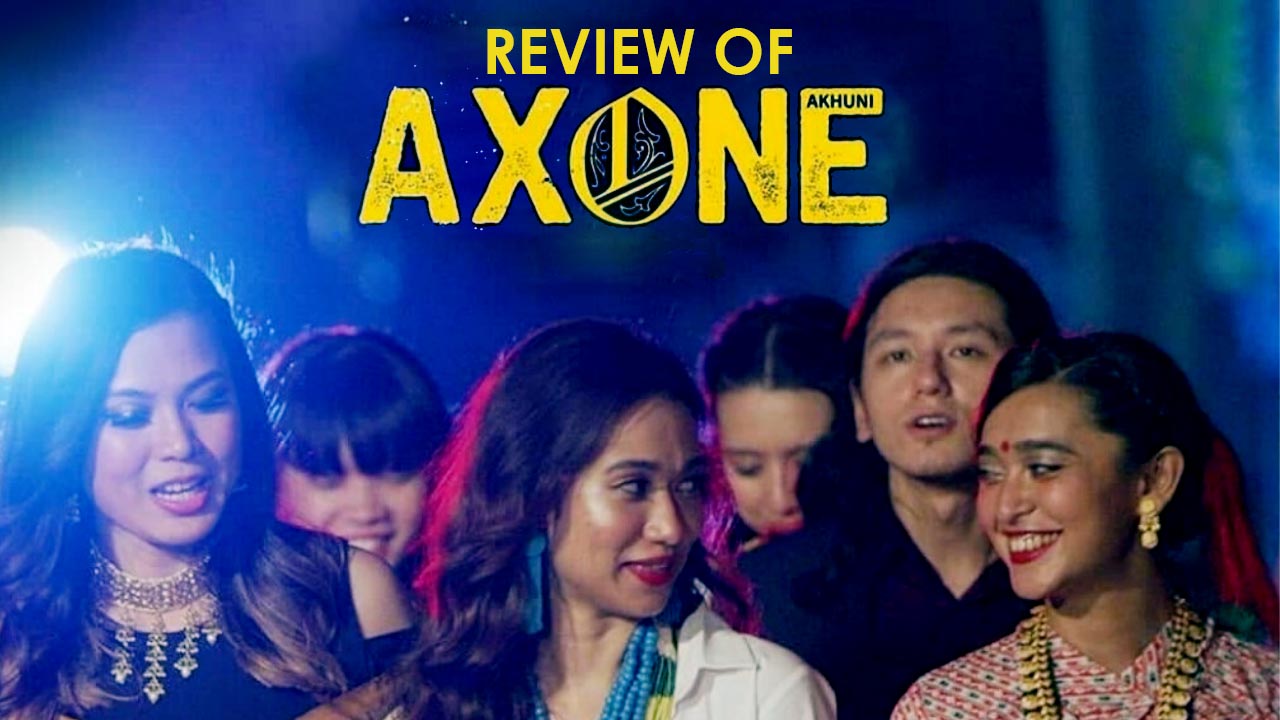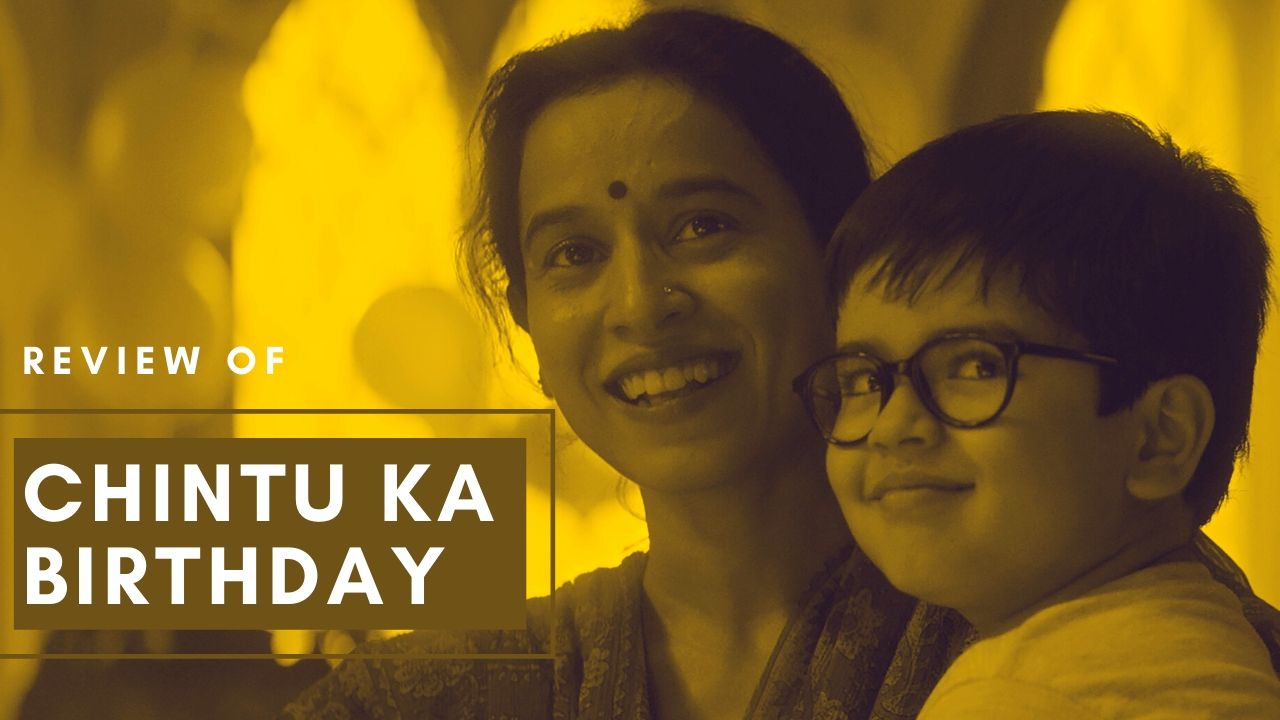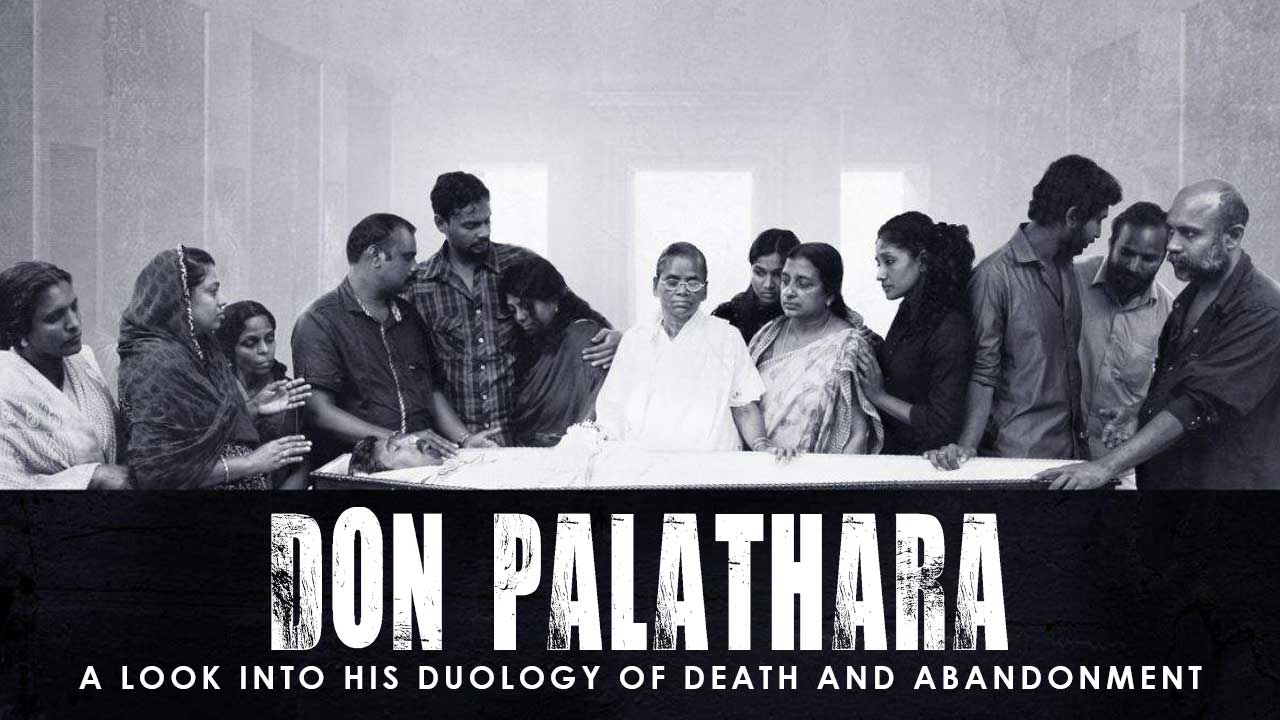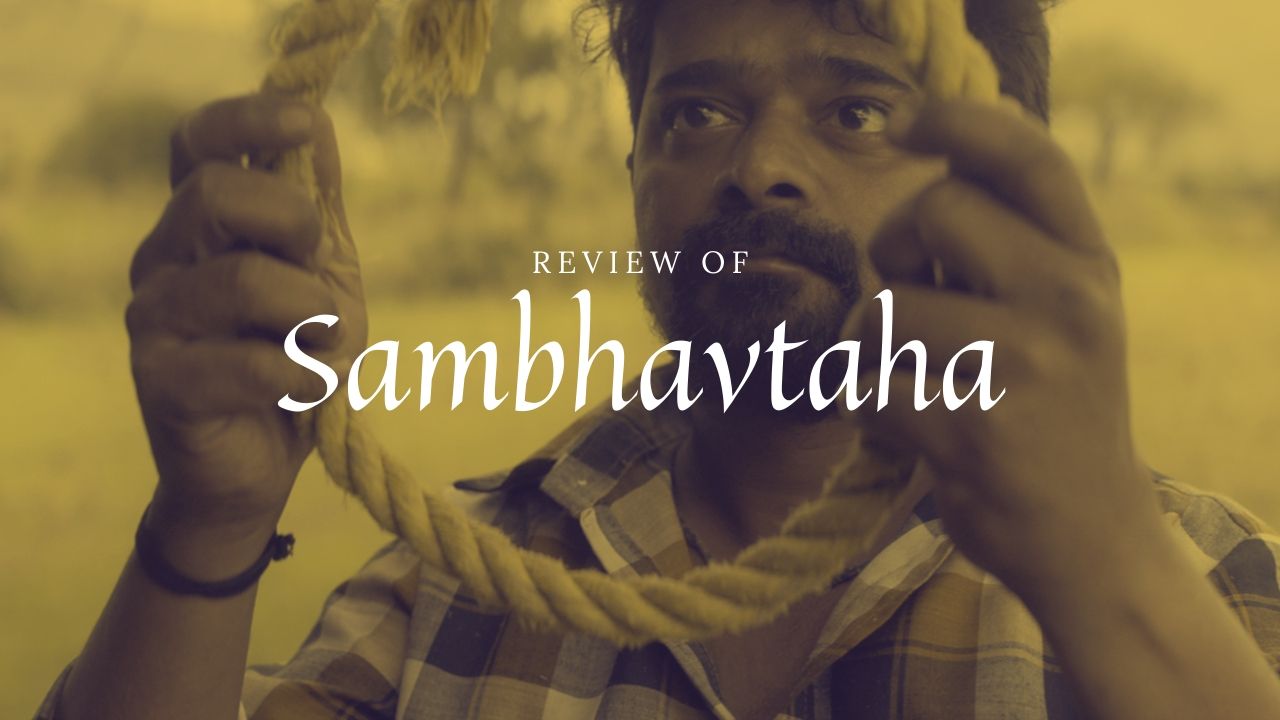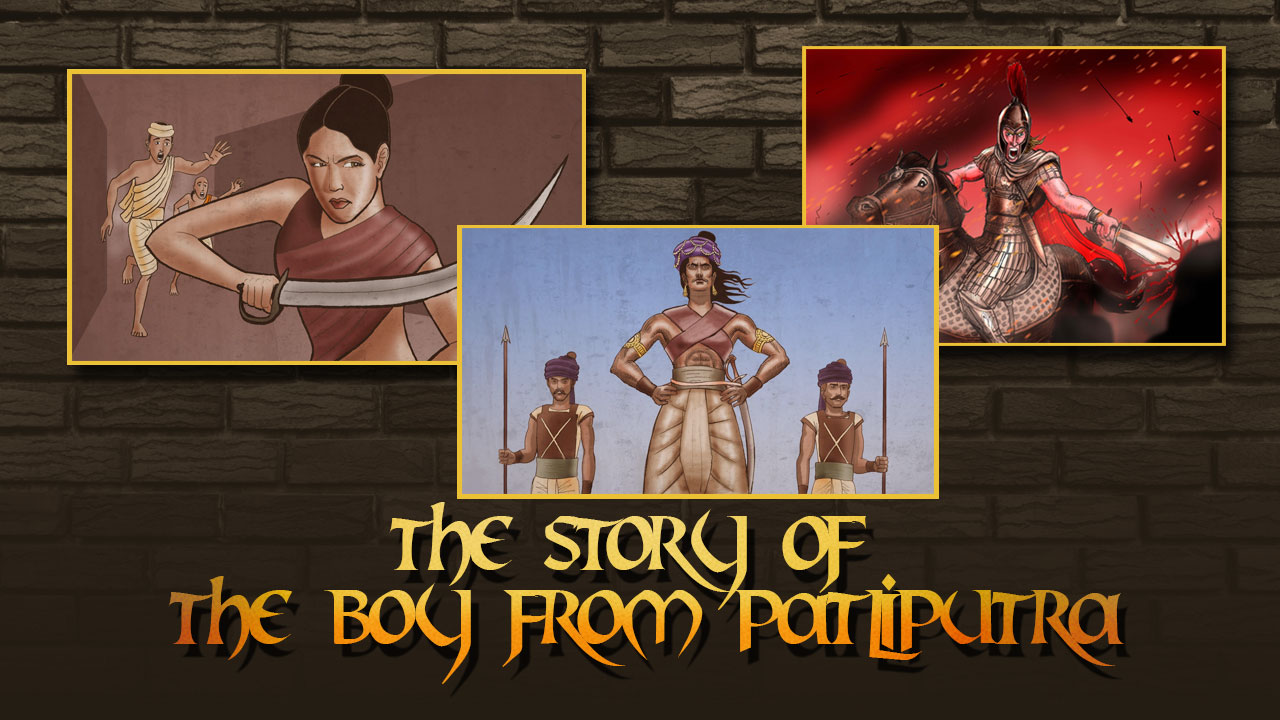
Before you assume anything, we aren’t now foraying into Book reviews. However, to clear the concept, we will be talking to authors who are bringing out promising content via their books and try to define the culture of modern day Indian literature. Our attempt in doing so has led to Rahul Mitra and his book ‘The Boy From Pataliputra’. The epic historical coming of age story set in a scenario of ever changing political volatility in Ancient India is what makes ‘The Boy From Pataliputra’ an intensely gripping read. We caught up with the author Rahul Mitra and quizzed him about his thought process behind the book. The excerpts of it below..
The Premise And The Thematic Of ‘The Boy From Patliputra’:
Look, straight off the bat, one thing I can tell you is that it’s not mythological in any way. This is a book that is based on real history and real events and is the outcome of hours of painstaking historical research. That said, it’s not easy to slot this book neatly into any one genre. On the surface, It’s a very straightforward ‘coming of age’ tale but it’s set against the backdrop of Alexander’s invasion of India in the 4th Century BC. So while at one level, this is the story of our protagonist Aditya, underneath it, this is really the story of India.
Keep in mind that this novel is set during a particularly exciting period of our history- the rise of the first ‘All-India Empire’ under Chandragupta Maurya. So I would say it is both a ‘coming of age’ novel as well as a story about the rise of a nation. Apart from this, it’s also a social and political commentary on our society but that’s only if you read between the lines. So it’s a complicated book and going by the feedback I’ve received so far, it’s clear that different readers take away different things from the book. In fact, some have even ascribed motives and drawn inferences that I had never thought of myself.
Coming to why I chose this sort of a theme- one answer is that it evolved out of a mixture of all my interests- in India, Indian history, physical culture, philosophy etc. However, the idea to set it during Alexander’s invasion came to me during the India against corruption/Nirbhaya rape case/Jan Lokpal protests that took place in 2011. During that time, I remember I was very upset when young students in Delhi were beaten and lathi-charged. And it wasn’t just me- there was a mood of despondency all around.
So I thought why not talk about a similar period from our history when the situation seemed equally bleak but which turned around quickly. The main idea was to give hope to readers as well as to myself. And this period, I found in Alexander’s invasion of India, a period in which India seemed set to fall under the conqueror’s boot, but which, instead led to the creation of the first ‘All India empire’. So that’s how I got the idea and that’s why I chose this topic.
What Makes The Book Click In The Category Of Mytho-Historical Genre:
Again, this is not mythology. Chanakya and Chandragupta were very much real, historical figures and the events described in the book, such as The Battle of the Hydaspes were famous and celebrated events in our history. Also, unlike the books based on mythology, this is very much an original story. What makes this book stand out is the reality of it all and the depth of the historical research done. Even the characters you will see in my books are not cardboard cut-outs but real people who are just as complex as you and me. I think those who really want to read real history rather than a Bollywood-ised or excessively jingoistic version of history will find a lot of value in this book.
Journey From The Inception Of The Idea To The Eventual Publication:
Long, excruciatingly long. The whole thing required a lot of patience. As I said, I got the idea after being disgusted at the way the authorities came down on protesting students in Delhi with lathi charges, beatings, water cannons and tear gas. After I got the idea, I spent almost 5-6 months reading up, taking notes and researching on the topic. Only after doing a thorough research, did I get down to writing and I think it took me another 6 months to put the first draft together. I thought my work was over, but actually, it had just begun.
There was a lot of struggle first finding a literary agent and then finally placing this book with a publisher and at every stage, different people asked me to change certain aspects of the book so I went through several bouts of re-writing. Between starting writing and finally signing the contract was a journey of almost 3 years and almost 5 to 6 bouts of re-writing, so what you see before you is possibly the 6th or 7th draft. So yes, the journey, at least for me was long and required a lot of faith, persistence and most of all, Patience.
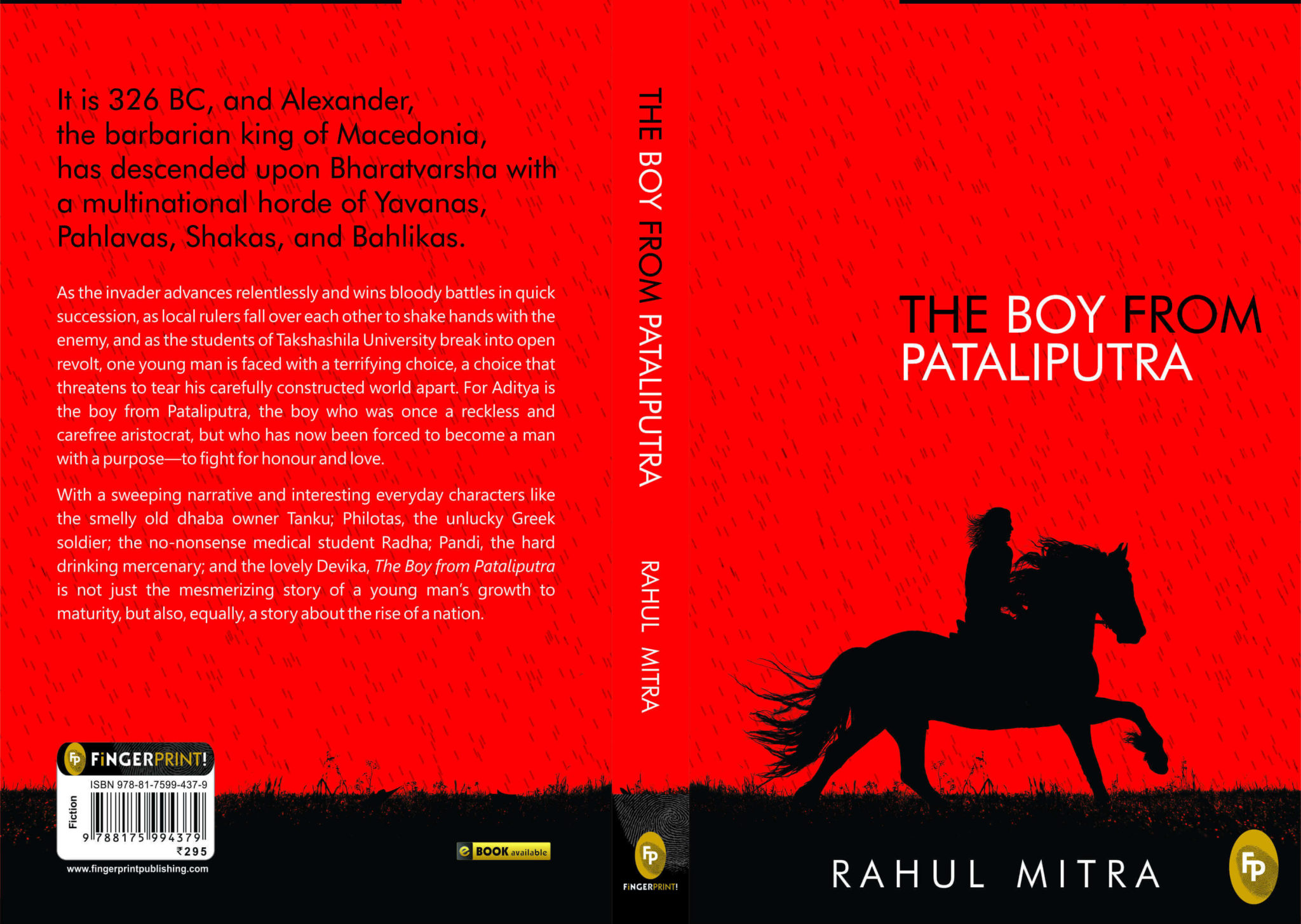
The Use Of Fiction To Paint The Canvas And Fantasy Elements:
My book is historical fiction and so it also combines facts with fiction. In order to pull this off, I have been very careful to keep to history as much as I can. Of course, there are many things that we do not know and so, in those places, I have tried to deduce events based on evidence and reason rather than on fantastic, superhuman people or theories.
However, combining fact with fiction is not easy. It is mainly about plotting and fitting your story into a timeline in which major events, the structure of society, existing technology are all a given ie: taken from history. So the better your historical research, the more you are able to incorporate little details from that given period into the story, the more realistic and believable your story will seem.
So for instance, when you talk of Aditya riding his horse all day and hunting, you must research on hunting techniques to make the scene realistic. When talking about his riding, you must know that the stirrups in Aditya’s time were toe-loop stirrups, which were first invented in India i.e: that stirrups were first invented in India.
When talking about the Battle of the Hydaspes, you must know that it was Alexander’s father Philip who first perfected the Macedonian phalanx and that the use of the phalanx with 21-foot long spears was the backbone of the Macedonian/Greek army. Yet, the army that invaded India was very much a multi-national army quite different in composition and tactics from the army that Alexander set out with in Macedonia. Alexander had learnt a lot from the fighting in Central Asia so there was a heavy component of fast-moving, lightly armoured Bactrian (Bahlikas in Sanskrit) horse archers in his armies along with Scythian (Shakas in Sanskrit) and Persian components.
Anyway, so basically, your hero Aditya and his struggles, his love for Devika, his desire for revenge or his ambitions, all his friends, all of this might totally be a figment of your imagination. However, to make it all believable, it must be set against a real historical background. The better you can do this, the tighter the blend of fact and fiction, the more real your story will appear. Believe me, even little details, based on a lot of research can really make a big difference.
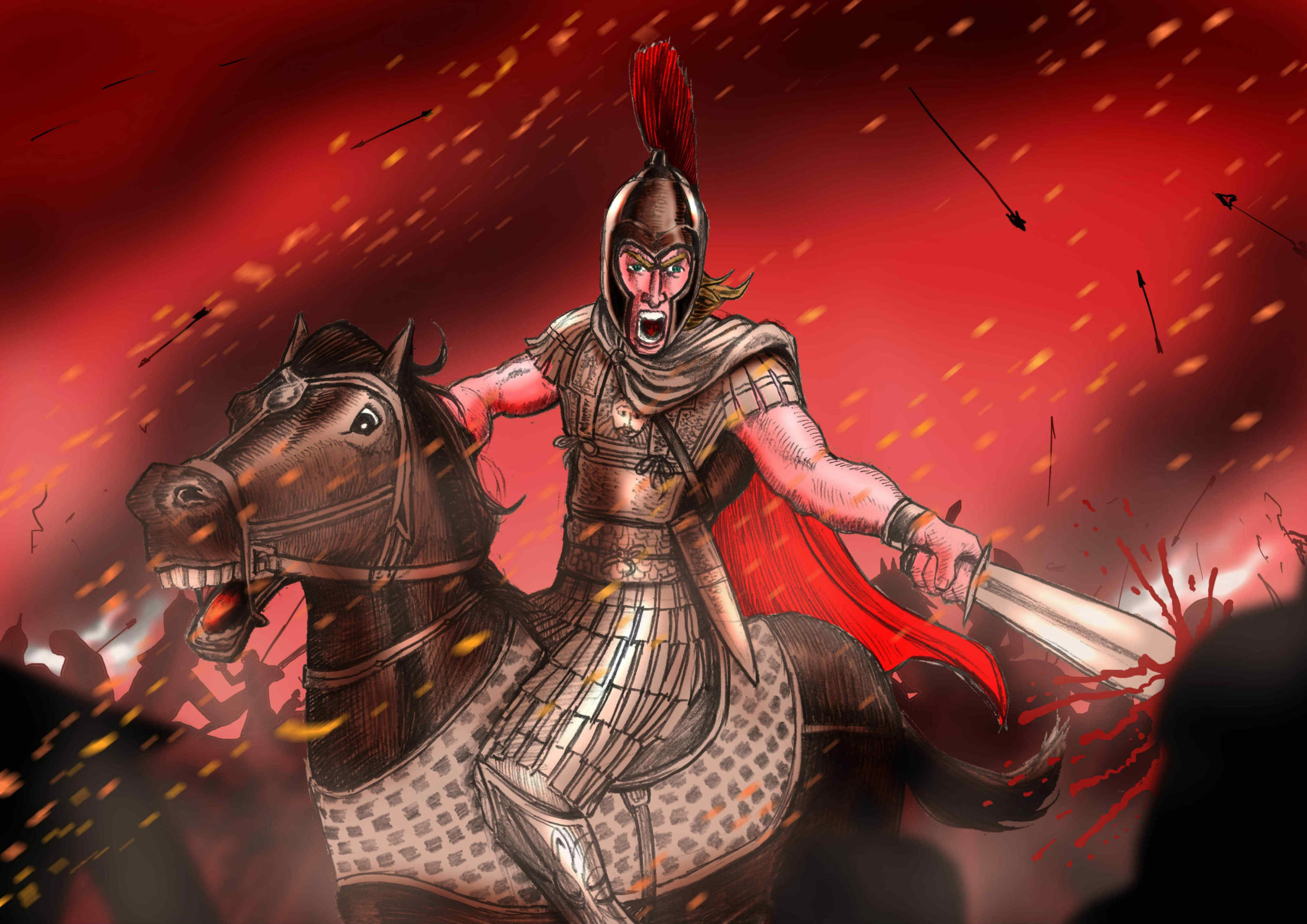
Who Is The Boy Of Pataliputra – The Summary:
The Boy from Pataliputra is a historical fiction novel, based in the India of the 4th century BC, and dealing with Alexander’s invasion of India and it’s repercussions. The hero of the novel is Aditya Vikram- and the story is about his gradual evolution from being a typical rich, selfish, spoilt brat to a balanced and mature individual. It is also a story about India and the ideals of Acharya Chanakya which led to the rise of a nation.
Who Are The Pivotal Characters And How Do Expand The Story?
The characters are actually my favourite part of the story and I think this book has a number of very well-developed and interesting characters.The protagonist, of course, is Aditya Vikram as I already mentioned. When we first see him, he is a typical selfish and entitled spoilt brat whose only interests in life are hunting and riding his horse, Ashvaghosha (Another character in his own right). He regularly bunks his classes and avoids going to wrestling with his brother as he hates the discipline involved. On the other hand, he has a kind of cunning and knows how to have his way with his brother. All of this changes when his brother is implicated in a politico-religious conspiracy and executed by the Government of Magadha and Aditya is suddenly thrown out into the world, penniless and hunted. So the story is essential
All of this changes when his brother is implicated in a politico-religious conspiracy and executed by the Government of Magadha and Aditya is suddenly thrown out into the world, penniless and hunted. So the story is essential of his journey, the challenges he faces, the friends he makes and how all these experiences and people help him to transform into a mature and balanced individual. The interesting thing is that just like at the beginning, he has shades of grey right until the end. He is more selfish than his friends, a loving person but also more practical and cunning, qualities which help him survive and grow.
Rishabha is his best friend, a guy who is more impetuous, sincere and idealistic than Aditya. His idealism, as well as his outspoken nature, get him frequently into trouble so Aditya often has to look out for him. Sometimes, of course, he even gets Aditya into trouble. The interesting thing is, that due to these contrasting natures, we see him acting as Aditya’s conscience and urging him to do the right thing during tough situations.
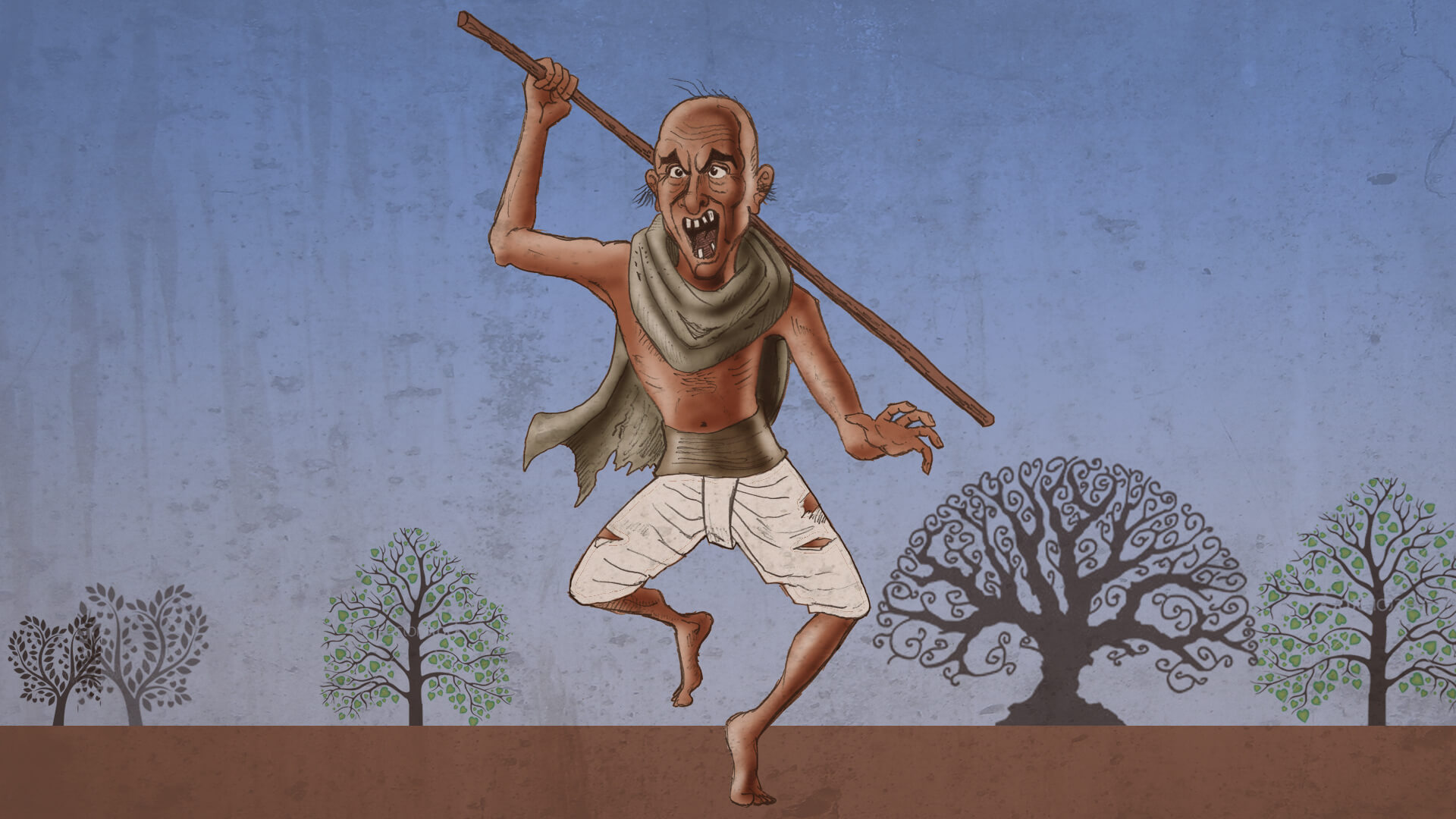
We also have Radha, another of their friends who is a medical student at Takshashila University. She is described as lean and fair, with a brusque no-nonsense type of personality. She’s the most mature and balanced one in their group and often seems to know and understand Aditya even better than he understands himself. She is often the voice of reason and calm in the group which is full of a number of hot heads. She also has an activist streak in her and knows how to wield a sword.
Apart from this are many other well-developed characters, some of whom are actually my favourites. There are guys like the smelly old, cantankerous dhaba waala and notorious drunkard Tanku, who is made up in equal parts of malice, humour and cantankerousness. He is described as an elf of a man- bald, thin and knock-kneed, a dhaba owner who gladly indulges and gets cheated by students he likes, while at the same time driving away paying customers if he doesn’t like their political opinions.
There is the unlucky Greek soldier Philotas, a mild-mannered middle-aged Athenian, who is sick of the wars and longs to be back home in Greece. His primary motive in most situations is to save his own skin and to have a good meal and yet, somehow he often finds himself right in the middle of many developing situations or at the forefront of any attack.
There is also the geeky, short-sighted Pakhta student Charaka who bunks his classes and conducts experiments at home and seems to be divorced from reality and social skills. There are the twins from Vanga called Budhaditya and Bodhisatwa who often behave in perfect synchronicity, somewhat like Thomson and Thompson in Tintin. There is the third-rate rogue Vijayendra who is by turns a flatterer, a comedian and the most humble of men.
There are in fact, quite a cast of characters and I really hope readers will enjoy reading about these guys.
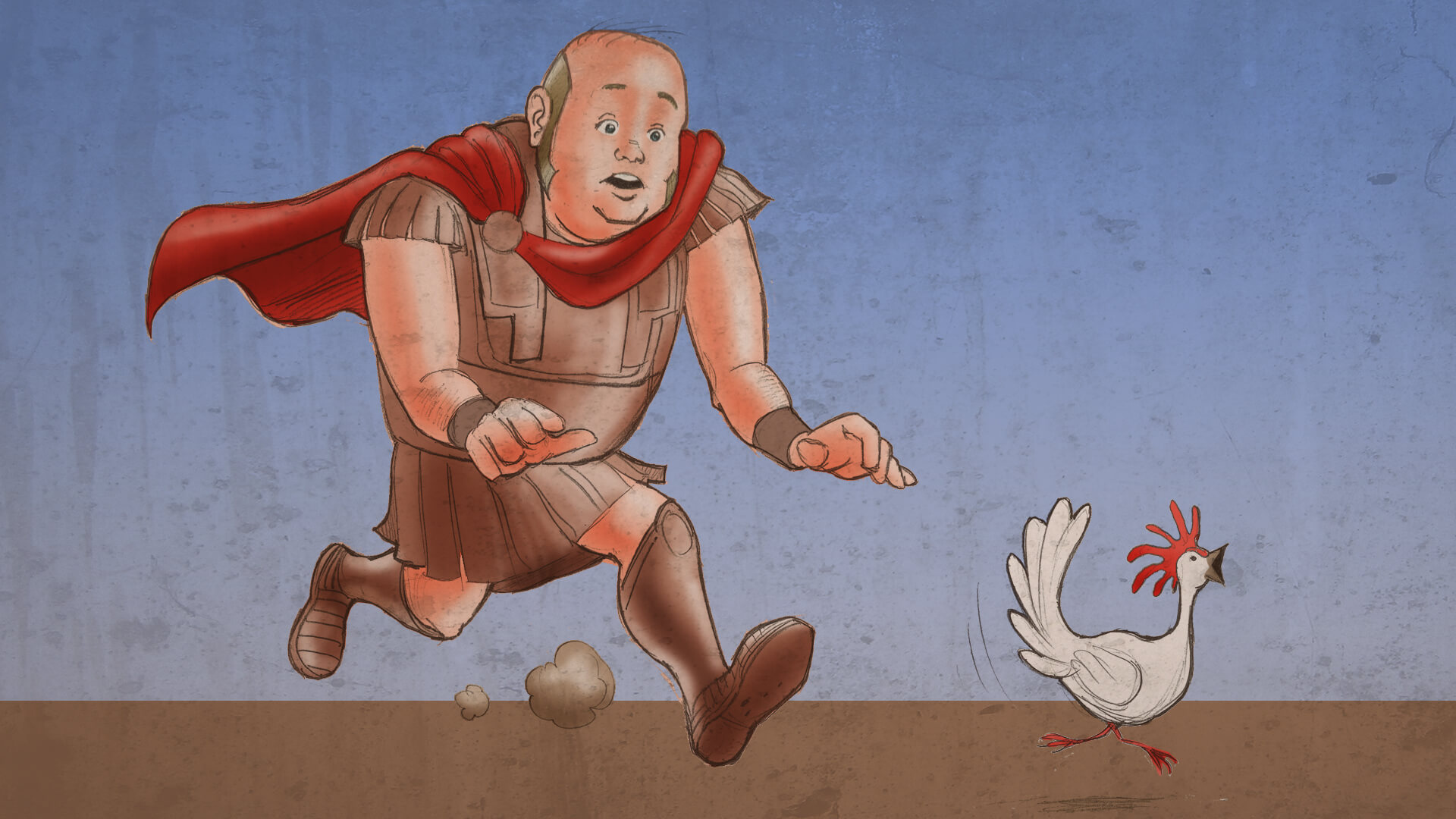
Indian Mytho-Fantasy Vs The World Fantasy And Why Don’t We Get Our Game Of Thrones?
First off, our mythology is rich, layered and thrilling and can hold it’s own against any mythology anywhere in the world. I strongly believe that Mahbharata is the greatest story ever told. It literally beats the Illiad and the Odessey hollow, and these are Greek epics which are supposed to be cornerstone of a proper Liberal Arts education in the west. The depth of the Mahabharata, the sophistication with which it explores various philosophical questions, the layers to the stories and the characters, and the tight plot which despite the thousands of characters, number of back stories and ‘stories within stories’ seems to be leading almost inevitably towards the Kurukshetra War are things that cannot be matched by things like Game of Thrones (and I say this as a big fan- in fact, one of the reasons I love the ASOIAF is that it seems to mirror the sophistication of the Mahabharata) or JRR Tolkien’s work. And I say this with no disrespect to these authors, whose work is seminal.
If anything is lacking in our part of the world it is the sophistication of our readers. I feel really angry about all these bloody literature lovers who have not read the Mahabharata but talk about Shakespeare. According to me this epic ought to be the foundation for anyone taking a literature class in India. It is unfortunate that we have people who only remember Mahabharata from the TV serial, who have never read the epic and all its ‘stories within stories’ and it’s philosophical tracts etc. in full but seem to lap up watered down and simplified, cheapened versions of these stories when provided to them by authors who are frankly doing nothing more than taking small, lesser-known episodes out of these stories without any imagination or additional input.
If you want to read about the Mahabharata from Karna’s perspective or the Ramayana from Meghnad’s perspective, it’s already been done before in a number of regional languages. For god’s sake, read those books first they will blow your mind. Better yet, just read a good translation of the Mahabharata in full and you will realize how much cheaper these imitations flooding the market are.
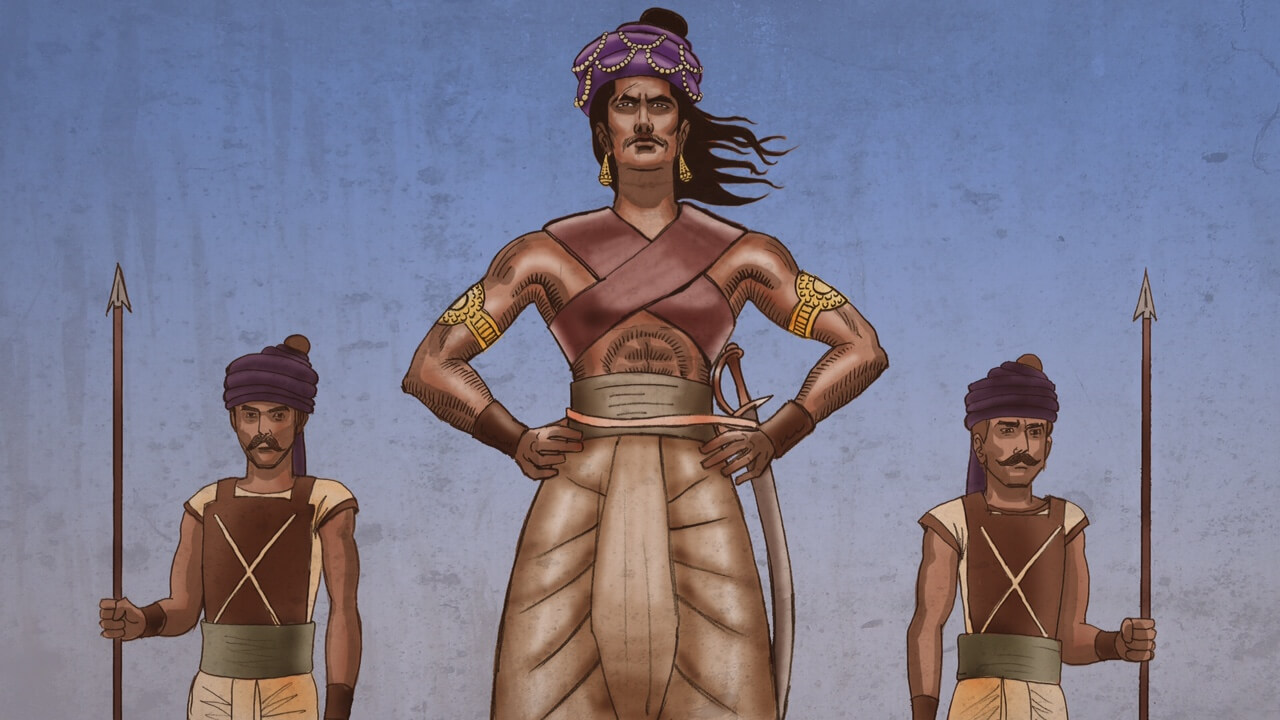
The Boy Of Pataliputra, The Relevance Of History In Contemporary Times:
We study history to learn from it. If dealing with a historical topic meant that a work has no relevance to modern times then let’s just say that there is no use for books like the Gita, the Bible, Mahabharata or even Shakespeare. It doesn’t work that way. Look, society might have changed, laws might have changed and technology might have changed but people, people are essentially the same. The same game of life is being played out today, by the same archetypes as was being played out during the time of Alexander and Chanakya.
People are still driven by motives of love, greed, hatred, jealousy, ambition, empires still rise and fall, human beings still exploit each other, they still divide themselves into classes and castes and countries still wage war against each other. Only the means have changed, become more deadly and more subtle. So yes, we no longer have slavery, we no longer have colonialism but does that mean one class is not dominating the other or that some countries are not exploiting other countries? No, it’s just that it is not happening openly, the means of this domination have become far more subtle and are backed by fine tools of propaganda.
So nothing has really changed, and that is why we need to study history and literature, so we can spot patterns and learn from past mistakes. If you read between the lines of my book you will actually find many parallels to what is happening in the world of today. Back then, Buddhism and Jainism were on the rise in India. Do you think self-serving leaders would not have tried to exploit the divisions between religions for their own benefit back then as they do now? That would go against the very grain of humanity. So I have shown such situations then also.
Indian society was divided by caste, then as now. If anything, it has been argued by many that these caste divisions were codified and became much more rigid during the British rule. Then as now, how do foreign powers retain influence and power in this region- by playing off Indian rulers against each other just like outsiders can gain influence and sell more arms to our entire region by playing off Pakistan against India. Then as now, there were many poor people as well as classes that do not seem to even acknowledge the poor as part of the same society. Then as now, there are dynasties which still rule over the masses, just that the means of doing this have changed.
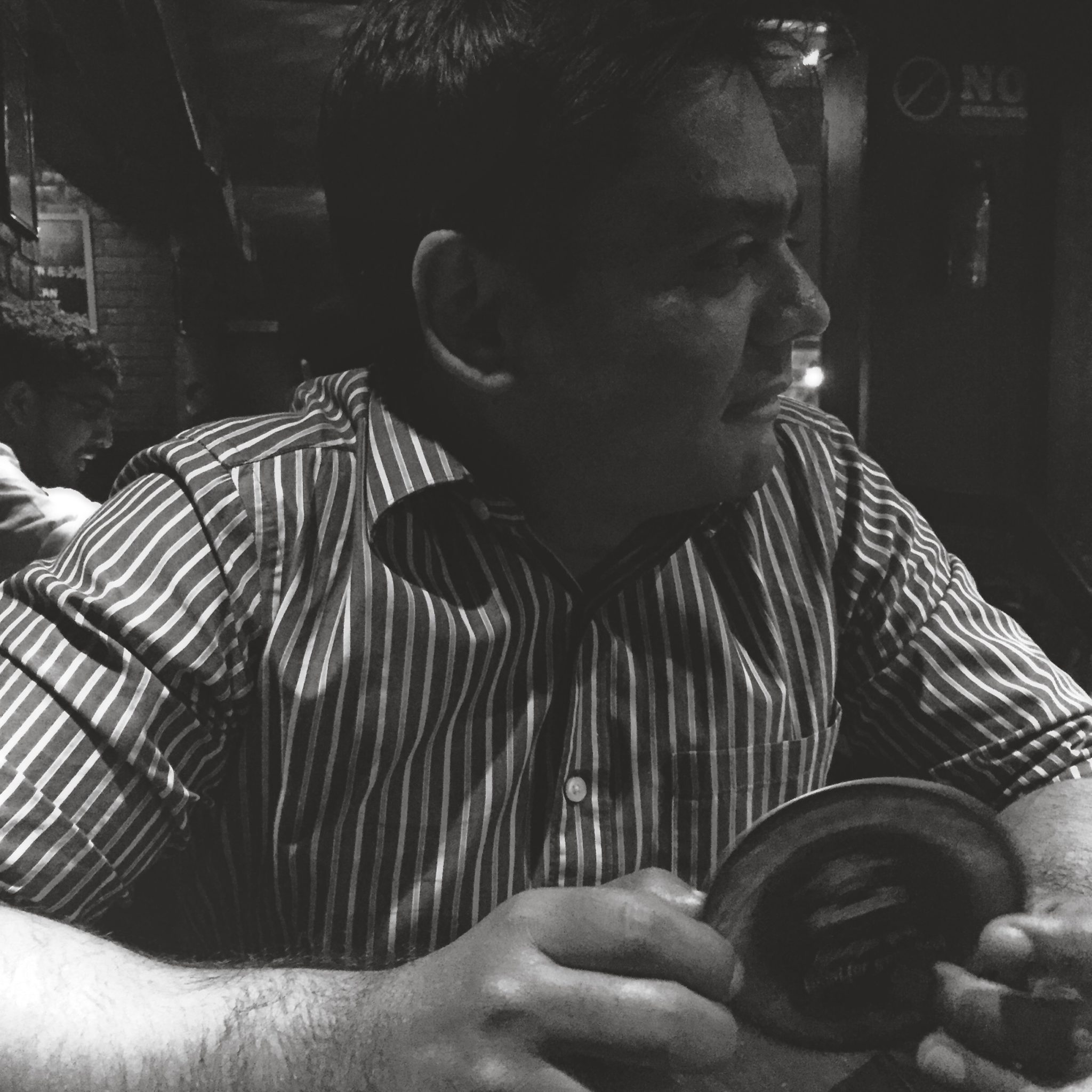
Centuries back, a Roman emperor decided that he would ‘give them the circus’ to keep the plebians occupied and distracted from the real issues. Today we have Kumkum bhagya and the IPL beaming into our homes with absolute regularity. So if you are angry and frustrated at living a meaningless life and doing a humdrum job, you can always come home and deaden the pain and the meaninglessness by watching the bright lights, constant noise, the glitter and glamour of the IPL. You can just ‘zone out’ and that is often relaxing, for it prevents you from reflecting and thinking which can often be painful.
Years back, dictators and rulers used to build up the bogey of an enemy country and start wars to provide an outlet to all the frustrations of their population and to divert attention from the real issues at home. Today, if you are angry at never having had any real opportunities in life, have felt humiliated because you do not know English and so cannot get a good job or are frustrated at your poverty and lack of opportunities, you can shout and scream and abuse anti-nationals on social media and for once in your life, feel purer and superior to these scum. It’s a win-win. You win because you feel good about yourself, it gives a good massage to your ego and politicians win because they have just distracted you from the real issues yet made you feel good about yourself without having to build roads, schools and hospitals.
Any Forthcoming Issues In The Series?
Yes, absolutely there will be a second part and a third part as well. There will always be additional parts as long as the story of Aditya, and more importantly, the story of India is not completed. We are building up to an important event which is the establishment of the Mauryan empire and there is no way this story will end till that has come about.
Approaching Publishing Houses – The Trails and Tribulations Involved:
Firstly and before anything else, I would advise them to write, write and re-write. Do not even think about publishing before you have a manuscript that you are completely satisfied with. Unless of course, you are a celebrity, a well-known journalist/intellectual or an author with a couple of titles already under your belt. If you are a debut author whose name no one knows, then I repeat once again, do not think of even approaching a publisher until you have done the best you can with the book you are writing.
Once you have come to that stage, I would advise you to get a literary agent. Getting a good agent to represent your works will at the least ensure that your work is considered/read by publishing houses. Without an agent, you can never be sure if your manuscript has actually been read or has just gotten lost in a slush pile. So an agent is essential.
After you get an agent, the agent usually queries or sends out your manuscript to various publishing houses. There is nothing you can do at this point but wait and pray that your manuscript is liked by at least one publisher. If you do get lucky, next will be the contract. Here, a good agent might get you a slightly better deal but you being a debut author and a nobody really do not have much leverage in case you want to change or amend the contract.
After the contract is another period of wait, as the publishing house puts your book in the pipeline to be released at a certain date. It’s like an assembly line, and in front of your book are other books with a higher chance of selling than yours, books by hot-shot authors for which your books publishing might be delayed as well as the books which came onto the line before you. Only after all of these are taken up will your turn come, so you have to be patient here. To be honest, different people have had different experiences at this stage, some had their book out within 3 months of the contract, while I had to wait for 1.5 years after my contract for the book to move.
So at this point you just wait, till one day you will suddenly get news that the editing of your manuscript is set to start. This is another arduous process for you will butt heads with your editor argue over different passages and words and again start re-writing certain portions of the book as per editor feedback. After the editing will be the proof-reading, the design, lay-out and finally publishing.
Enjoy it for some time, till you again start worrying about how to sell the book. It’s a never-ending cycle. If you are an aspiring author, I wish you best of luck and would advise you that more than talent it is your hard work and persistence that can get you published.
